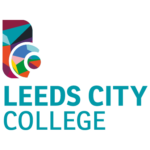Overview
Postdoctoral Research Associate in the Department of History – Strand, London, WC2R 2LS
About us
This post will be based in the History Department in the Faculty of Arts and Humanities in King’s College, London (KCL). King’s History department is an internationally recognised centre for the study of the history of the world. We are an intellectual home for scholars of every region of the world, who use approaches which range from local micro-histories to large-scale quantitative analysis. We particularly value conversation between scholars of different periods and places, with different approaches. We also value our connections beyond the world of scholarship, with strong relationships to our local communities, and to cultural and policy institutions on a national and global scale; impact is central to much of what we do.
About the role
‘The Digital Labour of Covid-19 Volunteerism’ is an oral history-driven project that explores the politics of digital health work undertaken by Covid-19 volunteers in contemporary India. Led by Dr Tarangini Sriraman, the project team includes two postdoctoral research associates.
This is a mid-level PDRA position. The appointed person will use Digital Humanities methods to analyse and visualise qualitative narratives of pandemic relief work which consisted of using social media, aiding online vaccination, and enabling digital surveillance in the form of contact tracing. The objectives of the research include an evaluation of the following, (a) the politics of providing timely relief responses through digital applications during the pandemic lockdowns; (b) the role of gender, caste and class in shaping volunteers’ access to digital infrastructures of health; (c) the contemporary legacy of pandemic-driven health work in a digital landscape (d) India’s global claims of digital health infrastructures and their impact on grassroots health work and vice-versa.
Digital Humanities methods can broadly consist of familiarity with skills like coding, data scraping, archiving, data visualization, relational databases, or digital storytelling, but may not be limited to them. The appointed person should be able to demonstrate how some of these methods can be useful to a project studying the unequal forms of Covid-19 health work.
The appointed person will be required to carry out up to two months of fieldwork every year, produce their own and co-authored publications, co-organise one workshop, and contribute to the production of a podcast featuring Covid-19 volunteers.
King’s is a reputed institution in the research fields of health, digital humanities, and South Asia.
This is a full time post (35 hours per week), and you will be offered a fixed term contract from 1st January 2026 until 31 December 2028.
Research staff at King’s are entitled to at least 10 days per year (pro-rata) for professional development. This entitlement, from the Concordat to Support the Career Development of Researchers, applies to Postdocs, Research Assistants, Research and Teaching Technicians, Teaching Fellows and AEP equivalent up to and including grade 7. Visit the Centre for Research Staff Development for more information.
About you
To be successful in this role, we are looking for candidates to have the following skills and experience:
Essential criteria
- A PhD in Humanities or Social Sciences (preferably History, Politics, Anthropology or Gender Studies) or Digital Humanities *
- Training in Digital Humanities methods (for example, coding, archiving, data visualization, relational databases, data representation)
- Familiarity with at least one Indian language
- Experience in qualitative research methods (for eg. ethnography, discourse analysis, oral history, or network analysis)
- One publication demonstrating Digital Humanities methods
- Willingness to be part of a collaborative research team
Desirable criteria
- Experience working with minoritized groups
- Willingness to work in the fields of health activism, health work, or health policy
- Willingness to learn oral history or ethnographic methods.
- Willingness to produce both academic and non-academic research outputs
Downloading a copy of our Job Description
Full details of the role and the skills, knowledge and experience required can be found in the Job Description document, provided at the bottom of the page. This document will provide information of what criteria will be assessed at each stage of the recruitment process.
* Please note that this is a PhD level role but candidates who have submitted their thesis and are awaiting award of their PhDs will be considered. In these circumstances the appointment will be made at Grade 5, spine point 30 with the title of Research Assistant. Upon confirmation of the award of the PhD, the job title will become Research Associate and the salary will increase to Grade 6.

















